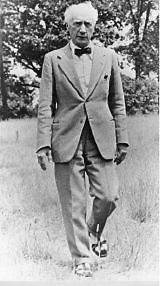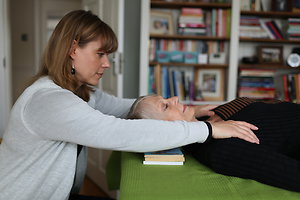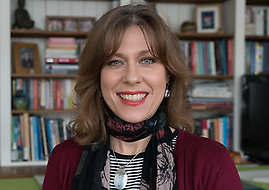The Alexander Technique has been used for many years to teach people how to use their minds and bodies in a more co-ordinated and efficient way. The Technique is not a therapy, although it can be very therapeutic. We teach a set of skills for self-awareness (intelligent movement or embodied mindfulness) that empowers the client and which they can then go on to use in everyday life.
The Alexander Technique does not just look at the physical body. Unlike other techniques it is also interested in how we think about things and can be a powerful tool for personal development. It can help reduce stress, build resilience, enable you to think on your feet, and present yourself with poise and confidence.
Everyone can Benefit!
All people, young and old (my students range in age from 9 to 92 years young!). Everyone can benefit from having a more conscious understanding of mind and body, it gives us the choice to live life in an easier, more poised and balanced way. You don't have to have back problems or an injury to benefit! Yes, Alexander Technique benefits us physically but it also helps us interact with others more easily and helps us be more mindful in the way we think and behave.
Benefits are across the board, improved health and wellbeing (helps back pain, RSI, help with pain, Parkinsons, stress, breathing and hyper mobility), improved performance (in acting, dancing, singing, playing an instrument and public speaking), sports and fitness, everyday life and work and in education.
The Alexander Technique is not about how we do what we do. It's about how we are being when we do what we do. Bruce Fertman, Alexander Teacher.
Brief History of F M Alexander
Frederick M Alexander was born in Tasmania, Australia in 1869. He was born prematurely, and was a sickly child suffering with respiratory problems. As a result he was home schooled.
In adult life he became an actor and a reciter of Shakespeare. Before long these respiratory and voice problems began affecting him. He kept losing his voice whilst performing. This problem was so bad it prevented him from working. Doctors could find nothing wrong with him physically and could only suggest voice rest. After a period of voice rest he would recover, but almost immediately he was back on stage performing his hoarseness would return.
As the voice rest failed to work long term and because Alexander began to realise that the same hoarseness did not seem to affect him in normal conversation, he postulated that the hoarseness must be coursed by something he was doing in performance that was different to normal talking. He decided to observe himself reciting Shakespeare and in normal talking with the aid of multiple mirrors. Over time Alexander observed that there was a difference in the way he moved and held himself within the two activities.
He realised that when reciting Shakespeare he saw three things happen.
1. He pulled his head back and down onto his spine.
2. He depressed his larynx (the area of the throat containing the vocal chords).
3. He began to suck in his breath through his mouth, which produced a gasping sound.
He found that these things did happen in normal conversation, but to a much lesser degree.
Over time he devised a practical system to stop these tendencies, which is the core of the Alexander Technique. In this process he realised that when he could poise his head better on the top of his spine his general health also improved, including the use of his arms and legs and his breathing.
The changes that he made to the way he used his body were very marked and people began to ask him to help them improve the way they used themselves. He did this until through increased demanded for this knowledge, in 1931 he started to train other people to teach his technique. He wrote four books, had a thriving teaching practice and carried on teaching and training new teachers until his death in 1955.
Aldous Huxley, Author and a pupil of Alexander's said
'No verbal description can do justice to a technique which involves the changing...of an individual's sensory experiences.
I wanted to change the world. But I found that the only thing one can be sure of changing is oneself.
This, as I know the experience, is an exceedingly valuable technique.'



